I know, as a photographer, that there are countless misconceptions that non-photographers (and in some cases, even photographers!) don’t quite seem to grasp. From the hundreds I could name, I have narrowed the list to five of the most exasperating misconceptions about photography.
1. Photography is easy
Nothing frustrates me more than when people claim photography is easy. Sure, it’s easy to take a picture; however, being a photographer is more than just taking a picture. It’s an art. It requires experience and skill to take a visually appealing picture. As a photographer, you must understand how lighting works, when to actually take the picture, and MANY more variables to take good photographs. It’s not as easy as what most people think (i.e., taking a ‘selfie’ and chucking a quick filter over it on Instagram).
2. “Your camera takes great pictures!”
No, it does not. I take the great picture. My camera is merely a tool that allows me to execute my skills to my highest ability. This is another thing that irritates me. Sure, most of the time, the person delivering this statement means it in a positive way, but I can’t help but take it as more of an insult than anything. It’s essentially dismissing the years of experience, the amount of practice, and my overall skills in photography, and claiming that my camera is the mastermind behind my photographs. So please, if you’re one of those people who thinks the camera itself is the reason for professional photographs, bite your tongue.
Can I also just add that using a more expensive camera does not mean your photographs will be better? You can give an amateur a really expensive, high-standard camera, and it does not mean that their photographs will outperform a professional photographer with a low-budget camera. That said, if you know how to use a high-quality camera and all of its features exquisitely, then maybe this point is not applicable to you.
3. Nikon is better than Canon or Sony
Saying Nikon is better than Canon is like saying apples are better than oranges. It’s a completely misleading way of thinking in terms of photography, and (similarly to the previous point) you should refrain from speaking. Basically, Nikon and Canon are both excellent camera brands. However, one might be more suitable for one person, and the other might be more suitable for the other person. The camera choice is all relative to the camera owner. It depends on what exactly you want to do with the camera, and what you want to achieve. Maybe the person making certain claims simply had a negative experience with one of the brands, which is not to say you will have the same experience at all.
Instead of taking someone’s word in regards to which camera is better, you should instead do something cool, and that’s called research. The strange thing about research is that you can develop your own perspective of which camera is better and maybe come up with your own conclusions. Research includes looking up reviews of the camera you find appealing and comparing the camera with other cameras you might also have an interest in. You should also take the camera’s price into consideration and see if that price justifies its features.
4. Age is a barrier to success
This is simply far from the truth. Just like music: there is no ‘expiry’ date to being a successful photographer. In fact, how old do you think I am? I could be 90 years old, or I could be 16 years old. I’ll tell you right now that I’m neither of those ages; however, I am somewhere in between.
Basically, this point is to disprove the misconception that age is a barrier to success. I know people of all ages, sexes, races, etc. who are extremely passionate about photography. All those things are simply unimportant to their success as photographers.
5. Black-and-white images are better and more professional
Finally, we have come to my favorite point of all: black-and-white photos. Now, don’t get me wrong; black-and-white photos can work really well, but the lack of color does not instantly make them professional. It depends on the photo itself and how the black and white has been executed. However, nothing irritates me more than when people throw on a black-and-white filter and call it photography. There is far more to photography than people understand. If you’re one of these people who think a black-and-white photograph is simply superior, and every other photograph is inferior, I want you to do something for me. Google “black and white photography,” click “Images,” and then compare the first result to your black-and-white image(s). This should probably prove my point that black and white does not necessarily make an image better.
There you have it—some of the most “you-are-blatantly-misled” misconceptions that a photographer will hear throughout their career/hobby as a photographer. Let’s hope this article can make an impact toward obliterating these insulting misconceptions.
About the Author:
Cole is a writer/photographer who owns his own laboratory… I mean…website at considerphotography, which is chock-a-block full of information about photography.
Like This Article?
Don't Miss The Next One!
Join over 100,000 photographers of all experience levels who receive our free photography tips and articles to stay current:
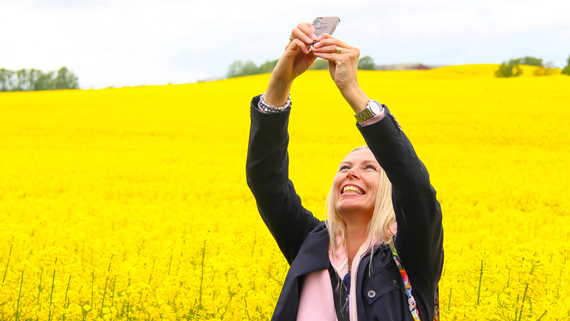
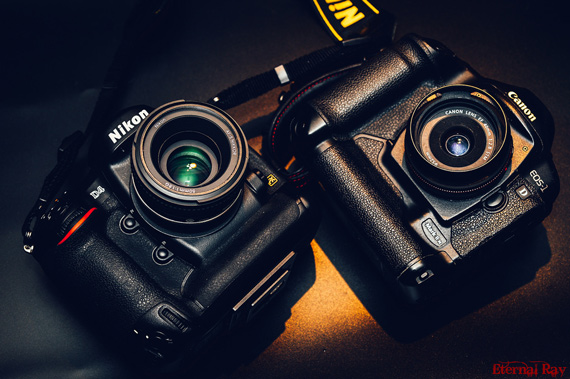
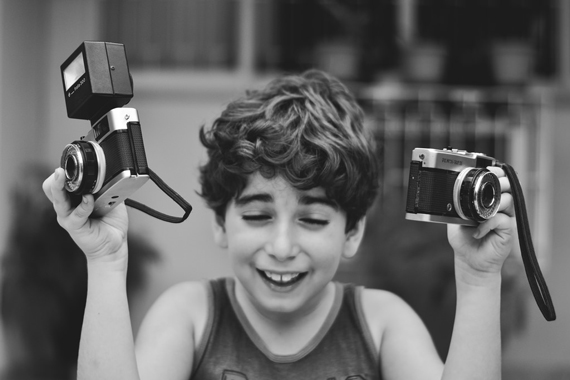
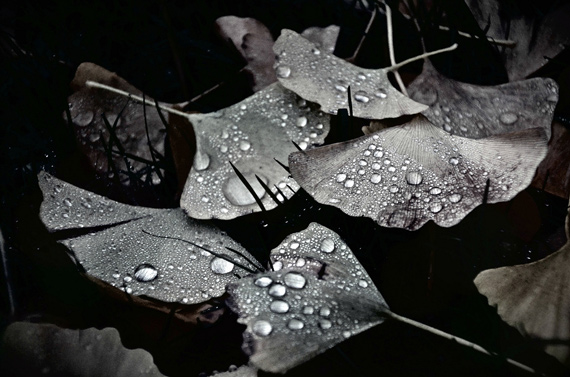

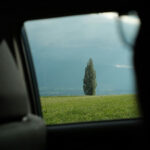

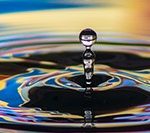

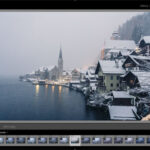
I really appreciated the latter part of point #2 – reminds me of a popular “pro photographer / cheap camera” series I’ve seen too. Talent > gear!
Amazing! Three comments and a Nikon user has to step forward, be bold and proclaim there love of Nikon. Does Nikon pay you to make positive comments about them? Why is it that any time this comes up someone has to proclaim there favorite brand is the best ? Did you read the whole story ? Why did you feel so compelled to speak about Nikon when nothing was said about either brand ?
I firmly believe it’s the photographer that makes a great image. The camera and lens are tools. A craftsmen can use any set of tools to produce great work.
ps Ernaldo, in the right hands your Nikon takes great pictures (Myth #2)
All good points, sadly, LOL.
I’ve had the “your camera takes really good pictures” – it was an elderly friend, so my reply was tempered somewhat “Yes, the same as your stove cooks really good meals” – she laughed as she got the point. As for the Nikon v Canon, an associate of mine had the same Nikon body as mine, her photos were (and still are) ‘meh’ – sooo, she went out and bought herself a Canon – photos still meh, I guess actually learning how to NOT use it on automatic MIGHT make a difference, LOL.
Oh, and I went with Nikon because I got a better package deal at the time, that’s all.
I love the people who say if I had your camera Id be able to take those photos.Thanks for the Good article it made me laugh because I can relate.
These are hardly myths, however Nikon IS better than Canon….
YAS! I actually agree with the author on this, but as a Nikon user, someone had to say it.
Also comparing apples to oranges is completely the wrong analogy, it would be better to say that they are like different varieties of apples. If you say apples and oranges it is more like comparing compact cameras to DSLRs.
I prefer the oranges and lemons aroma analogy – orange and lemon aromas are produced by chemically identical molecules that are simply mirror images of each other, so an orange is really just a left-handed lemon.
But as a m4/3rds and Pentax user I don’t really mind how Canikon users see themselves – they’re both wrong :-) ……….. just kidding …….. honest !!
BTW – the biggest MYTHs are missing – Rule of Thirds is key to good composition and You can only shoot landscapes during the golden / blue hours.
I would like to add a couple more myths:
Professional photographers produce better photographs than amateurs.
This may be true in some cases but the professional does it for money while the amateur does it by love.The professional must please his boss and is limited by the vision of the boss while the amateur is free to be more creative and must only please herself.
Post processing is in some way cheating or less pure than photos “Right out of the camera.” This is false. Clicking the shutter is not the conclusion of the creative process. It is the end of one step in the photographic process. In the pre-digital processing era, the photographer worked in the darkroom finishing the process. There the final print was made where the exposure and contrast could be adjusted and local adjustments could be made by dodging and burning. The convergence of vertical lines in buildings could be corrected by tilting the easel. Post processing has always been part of the photographic process.,